Whether it's on cable news or Facebook or in our living rooms, the country is engrossed in a conversation about same-sex marriage, and so-called religious exemptions or legalized discrimination. James Moran of the Los Angeles LGBT Center recalls a recent training session that is an example, at least on a small scale, of the nation's focus having unintended consequences on homeless LGBT youth.
"We talked about the disproportionate percentage of LGBT homeless youth in Los Angeles County," remembers Moran, a program supervisor in youth development at the Center. "There's like 5,000 homeless youth and 40 percent of them identify as LGBTQ, but in this training where we were trying to engage the idea of ending homelessness in Los Angeles County, 40 percent of the conversation was not about LGBTQ."
The problem isn't only in Los Angeles. LGBT youth make up an estimated 40 percent of young people currently facing homelessness nationwide.
"We have not done nearly enough to make sure that there's a safety net for kids when they come out if their parents won't accept them," laments Carl Siciliano, the executive director of the Ali Forney Center, an agency dedicated to assisting LGBT homeless youth in New York City.
And while the country celebrates Friday's historic win at the Supreme Court, Siciliano has a word of caution: "When marriage equality passed in New York, back in 2011, we saw an enormous surge of homeless kids."
Siciliano fears that marriage equality, though ultimately a good thing, could have unintended consequences for LGBT youth. "What happens is you've got all of these kids who see all of this progress and celebration and joy in the LGBT community, and it emboldens some to come out, and then you've got all of these parents in religious conservative households who have been riled up and feel like it's the end of the world, and suddenly there's this LGBT kid who's, like, Satan's little representative at their dinner table," he says.
Michael Martinez* is one of those young people in Los Angeles who has no home. Instead, he lives at the Center in West Hollywood because the 18-year-old was kicked out.
Soft-spoken but confident, Martinez grew up in a conservative household, which might surprise anyone who knew that his father taught at a high school in a notoriously LGBT-friendly city. The high school where his father works took part in a march for marriage equality in California. But his father didn't understand why anyone was marching, and was frustrated and "pissed off," says Martinez. His father doesn't consider same-sex marriage to be marriage. He wanted to call it "something else," says Martinez.
"It'll be the same thing, just call it something else," Martinez recalls his father telling him. He tried explaining to his dad that the fight for marriage equality was about "having equal rights."
"What if you and your wife couldn't get married? How would you feel?" Martinez asked his dad. "Well, that's stupid," answered his father. "Exactly," says Martinez. "My father is a stubborn man."
Reflecting on the irony, Martinez notes his father was the person who introduced him to other queer and allied students -- though the elder Martinez didn't know it at the time. After Martinez's first week of high school, he had made zero friends. His father said, "No, this is unacceptable," and introduced him to a student out of pity.
The student's first question for Martinez was, "Oh, my God, you're like my friend, are you gay?!"
At the time, Martinez recalls, "I was kind of closeted, only a select few of my friends knew," though he felt emboldened by the question, and instinctively told her yes.
The girl replied, "You're gonna fit right in!"
"It was just like a scene out of a high school movie," says Martinez.
Indeed, coming out as gay was less challenging for Martinez, especially because it didn't involve a physical transition. Coming out as trans is what finally put him on the streets.
"When I first came out as gay ... I kind of just admitted, ugh, you're hella gay," recalls Martinez. "But ... trans was more difficult because you're changing your entire life. You're changing your identity. Who you are. How people see you. Because if you're gay, you're gay. Nothing changes about you, but as trans, almost everything changes -- people's opinion on you. It's completely different. I think that was the most difficult part."
Ultimately, the biggest challenge to overcome would prove to be his father.
Martinez first remembers thinking of the possibility that his gender identity might not match his outside appearance when he was just 7 years old.
"When I was younger, I told my dad I was a tomboy because he was, like, 'Why don't you wear dresses?'" he recalls in an interview with The Advocate.
"I said, because I'm a tomboy, dad. He said, 'Oh, so you want to be a boy? Is that it?'"
Martinez looks up at the ceiling in the LGBT Center pensively, and says, "At that moment, it was, Do I? I was 7 years old. I didn't know if I did or not, but, growing up, I was more masculine and I wanted people to see me more [masculine], you know?"
At age 13, Martinez came out as gay -- but it wasn't on purpose. California was engrossed in a heated debate about whether to legalize same-sex marriage, and that debate echoed through Martinez's childhood home in Los Angeles. Martinez and his dad were fighting, he recalls. In the heat of his anger, Martinez told his dad, "You'll never understand me ... because I'm gay!"
His father yelled at him, and "it was obvious he didn't take it the right way," says Martinez now. "He actually pushed me down, and it was really bad."
When he first came out as gay, Martinez admits it didn't make him feel whole. "When I came out as gay, I didn't feel like it was enough," he reflects. "I was like, hmm, something is missing. I came out as lesbian and that meant you only go with women; but I was still attracted to men."
By the time he was 17, Martinez found the words to articulate his gender identity as a trans man, after seeing the "pregnant man," Thomas Beatie, on Oprah. Seeing a transgender man on national television made Martinez stop and think, Girls can do that? Growing up, Martinez only had exposure to trans women, he says. "I only thought men could transition into women, and then I saw him and I was like, oh ... and I looked it up."
Indeed, marriage equality isn't the only factor contributing to kids coming out younger. Sitting in the L.A. LGBT Center, Martinez's face lights up as he mentions Aydian Dowling, the trans man who could be on the cover of Men's Health. "If I would have seen more trans guys in the media like Aydian Dowling, I would have transitioned years ago."
He says maybe his parents "would have been OK with it, more or less," if he had come out at an earlier age, comparing it to how Angelina Jolie and Brad Pitt have allowed one of their children to embrace a gender identity different from that assigned at birth. Although the child was named Shiloh and assigned female at birth, Jolie and Pitt have spoken to media about respecting the 8-year-old's wishes to be referred to as John and with male pronouns.
Martinez is particularly interested in John Jolie-Pitt's story, because he says the media tries to paint Jolie as someone who is "forcing him to do that." But in his eyes, John's parents are merely "accepting it, they're letting him be who he wants to be."
The more representations of what it means to be trans exist in media -- whether in the news or your favorite television shows -- the more likely people are to come out early. And with "the trans tipping point" perhaps having arrived, so too could yet another kind of spike in homlessness.
High-profile transgender celebrities don't necessarily reflect the lived reality for many trans youth, notes Ali Forney Center's Siciliano. While Siciliano "honors and supports" the rise of trans visibility in pop culture with figures such as Caitlyn Jenner, he says, "It's entirely different for a kid who comes from a destitute environment to begin with, when your parents don't support you, you're stranded out there with no means to support yourself. Kids are not being prepared for that by what they see in the visibility in our society."
During his senior year of high school, Martinez gained the confidence to publicly acknowledge that he's a trans man and wanted to pursue a physical transition. He finally felt ready to confront the most threatening person in his life: his father.
At 17, Martinez was "so scared to come out" that he came out in a letter to his dad. The typed, three-page letter took him three months to write and five months to deliver to his father. Swallowing his fear, Martinez placed it on the dining room table and left to go to his friend's house. When he came back, his father had read it but didn't say anything. But "I could tell something was wrong," says Martinez.
After coming out, Martinez told his parents he wanted to start taking hormones, a common clinical treatment for transgender people seeking to ease the dysphoria many feel with a body that does not match their internal identity. But his parents rejected his request, saying that pursuing a physical transition "was going to screw up my life," says Martinez.
Still a minor at the time, Martinez didn't have any option but to live in the hostile environment of his father's home. His father constantly "yelled at me about it," says Martinez. His father didn't understand what transitioning meant, and thought the sole focus was about what was between his legs.
"You want a dick?" his father would scream at him, menacingly. "My father's a very threatening man," says Martinez. "So I couldn't say anything to him. I just stayed quiet, and as time went on, it was clear that I wasn't welcome there anymore to live with him."
This wasn't the first time Martinez was kicked out of his home. He was kicked out once before, by his stepmother, allegedly for not cooperating with his father. But the second time Martinez was kicked out, it stuck. He found a place to rest his head not far from his school.
"I was going to school at the time and I was sleeping behind a CVS across the street from my college," says Martinez. His father "just didn't care anymore."
Hoping that tensions may have cooled in the time since he left home, Martinez says he recently tried returning home. Unfortunately, his hopes for a happy homecoming were quickly dashed.
His father greeted him aggressively, yelling, "You want to be a man? You're going to get treated like a man."
Martinez says his father then grabbed him and started "beating me, he threw a stool at me, I got hit in the head, blacked out and then he was just yelling at me more ... and it was clear that if I was going to [transition], I wasn't welcome."
"It was really hard, but it happens," says Martinez, on the couch at the L.A. LGBT Center.
Martinez's other family members don't feel the same way as his father. His aunts and uncles, including his grandmother, "all accept me," he says.
"My grandma even accepted me as her son and that was the happiest day of my life," Martinez says, fighting back tears as he recalls coming out to them on Thanksgiving. Despite his grandmother's acceptance, his father has forbidden him to contact her. He is afraid of disobeying his father after an ominous warning that "if you're not going to be my daughter, then you're not going to be my kid."
Jobless and without any resources, Martinez started to run low on money his first week on the streets. He had $5 to his name. He knew it wasn't enough for anything, and he was hungry already. This was a Thursday, and by Friday, he knew he had to be proactive.
He went to his college English professor and told her about his situation. He says he tried to remain as calm as possible even though inside he was "breaking down." His professor offered to help and took him to the head of the LGBT program at the school. He was originally going to be sent somewhere else, but then they suggested he call the Los Angeles LGBT Center instead.
When he finally got through, after various calls, he told the staffer on the other end of the line about his situation and was told he could stay at the Center -- if he could make it that night. It was already dark and he didn't have a car or the fare for public transportation, but he was restless.
He started walking the same path he had traveled all that week, to his "spot" behind the CVS, and stared at the ground for a minute. Then he said to himself, "Nope! I'm going tonight." He begged for money and took three trains and a bus to get to Hollywood, where he arrived "exhausted," he says.
All of this is a sadly common trajectory, says Siciliano. Once enrolled in college, Martinez had the support of his parents -- that is, until he started transitioning. "If you look at how young people live, an awful lot of people continue to be dependent on their parents for housing until they're close to 30," he explains. "Heterosexual youth get access to that support, and LGBT youth are much less likely to get access to that support when they're in that range of 18 to 25. It's just a huge disparity in economic support that's available to many LGBT young people."
Martinez is no longer a college student. He dropped out of the community college he was attending after getting kicked out of his home. He is now trying to get back on his feet with the help of staff at the LGBT Center.
After being at the LGBT Center for the past six months, Martinez says that "every day that goes by, I'm more comfortable with myself." In his house, he was still being called by his birth name, even after he corrected them several times, asking them to call him Michael. His parents would question him about wearing a binder, a chest-compression wrap often worn by trans men early in their transition. Martinez would try to explain that it made him comfortable, but they would say, "Well, it looks uncomfortable."
The LGBT Center has filled in as his "first family," says Martinez, adding that it's easy to identify with those living at the Center because they "understand that what happened before doesn't matter."
"We're here, we're together, and we're queer!" Martinez says triumphantly.
The staggering numbers of LGBT young people don't show any signs of slowing down. In fact, a new study revealed that millennials contain the largest group of self-identifying LGBT people of any generation. The March study from the Public Religion Research Institute determined that 7 percent of U.S. adults aged 18-35 identify as LGBT. That's a three-percentage-point spike from previous studies.
According to the Pew Research Center, many gay, lesbian, and bisexual people know that they may be attracted to someone of the same sex by the time they are 12 years old. By age 17 (when Martinez came out as trans), Pew found that LGBT people are "sure" about their identities. As people come out earlier, the homelessness problem worsens. Yet, the average age for Americans to come out as LGBT to close friends and family is still 20 years old.
"The fact that there are only about 350 beds in this country dedicated to homeless LGBT youth and there are at least 200,000 homeless LGBT youths in this country speaks to a terrible disconnect in our movement between our fighting for the progress of our adults and our lack of fight to protect our kids," he says. "We're so focused on legal equality -- as we should be, I'm not saying we shouldn't be focused on these things -- but we also have to recognize the responsibility to the most vulnerable parts of our community who get harmed in the process."
The Ali Forney Center is working on launching a nationwide campaign for youth shelters, collaborating with the National Coalition for the Homeless to change the advocacy dialogue around youth homelessness. The two groups are petitioning the federal government to consider such shelters as part of the basic safety net of the country.
Siciliano argues that the movement needs to refocus its efforts on LGBT youth, especially supporting the homeless and destitute. "I come back to the integrity of our movement that we got to do a better job at fighting for resources to protect the most disenfranchised members of the LGBT community," he says. "And the fact that there are hundreds of thousands of LGBT youth who are homeless and living in the streets of our country, and that there are only a couple hundred that are dedicated in helping them."
While Siciliano is at times frustrated with the singularity of the marriage conversation in national dialogue, the longtime advocate did witness a positive outcome after New York embraced marriage equality in 2011. Despite the surge of homeless youth the Ali Forney Center saw that year, Siciliano stresses that there were also "a number of donors who had been putting a lot of money into getting marriage equality passed, who then started thinking, What's next? Some of them came over and started supporting us. And they started seeing that the fight for the protection of LGBT youth is an important thing. I'm hoping that can translate into the national dynamic as well."
*Michael Martinez is a psuedoynm, which The Advocate agreed to use for the young man's protection at the request of the Los Angeles LGBT Center.
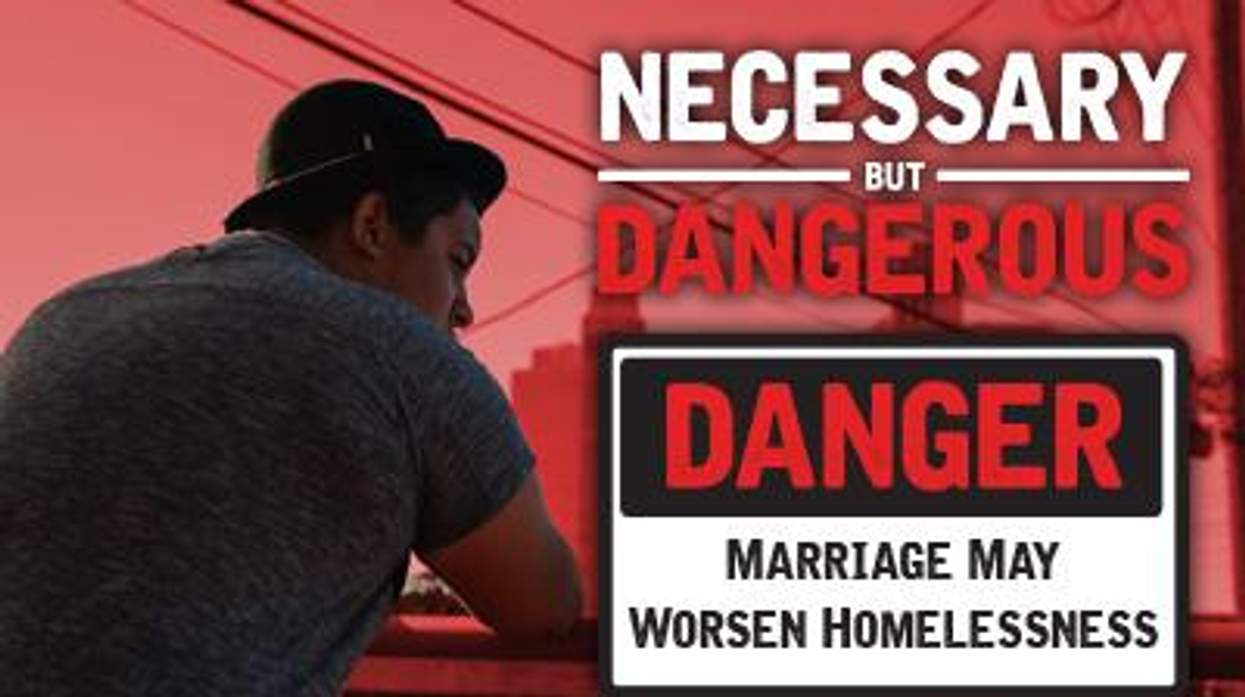
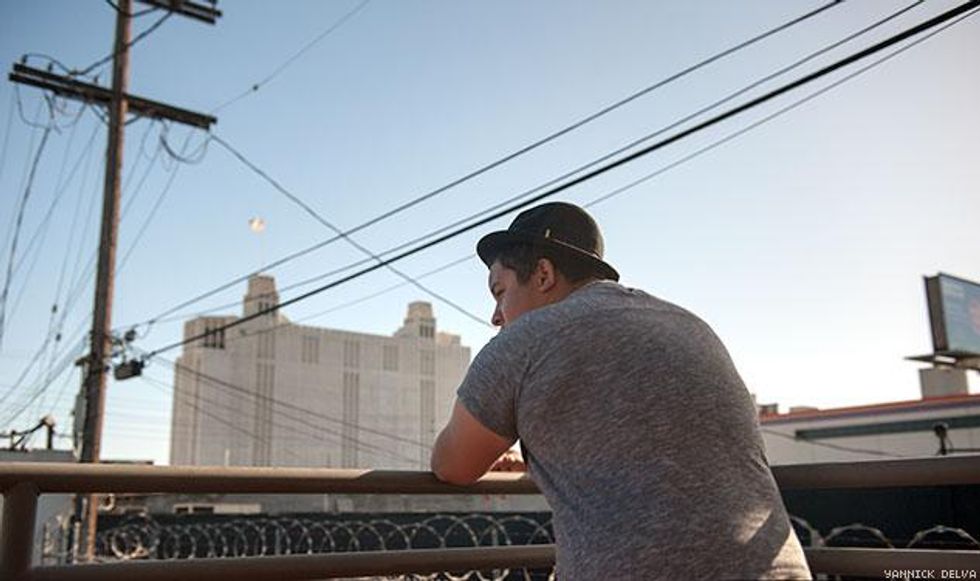
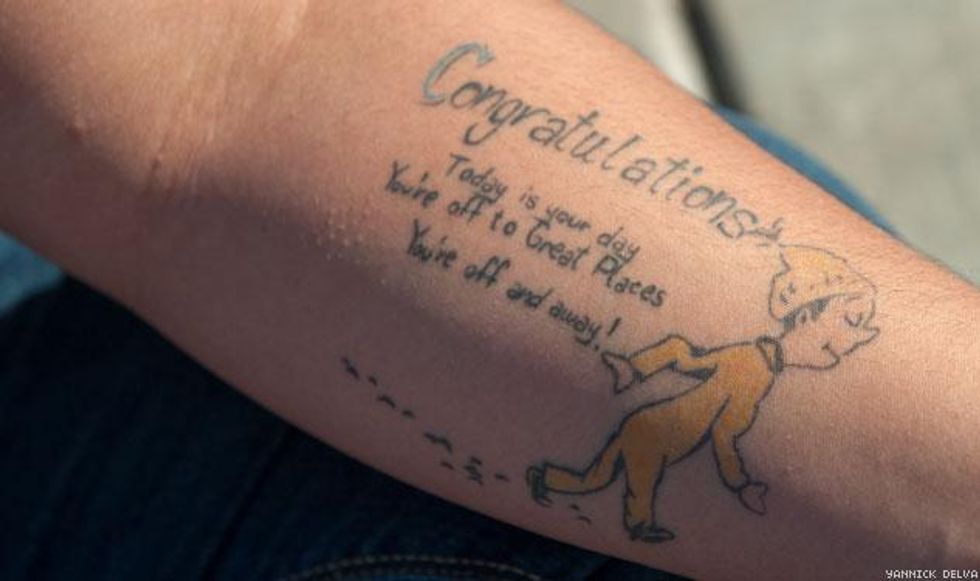
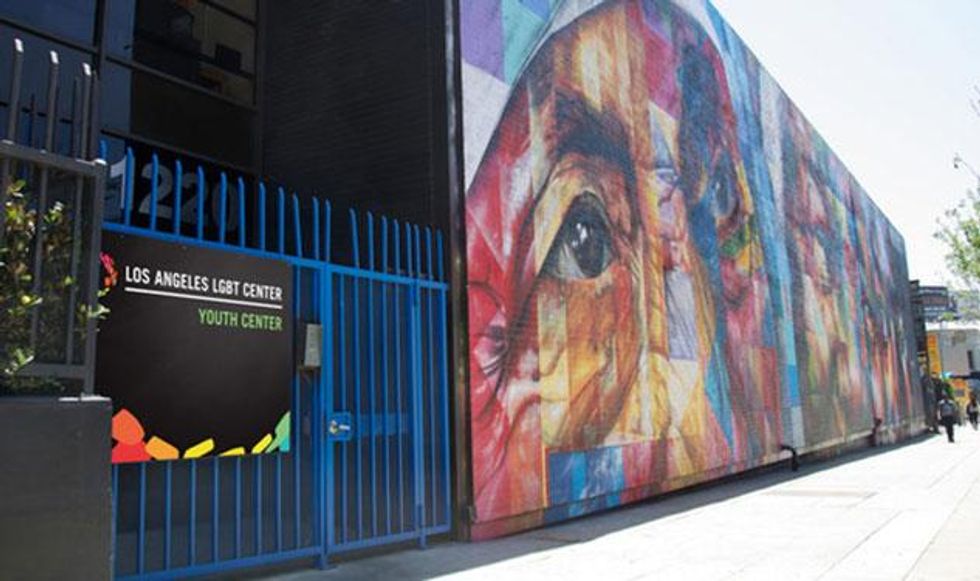
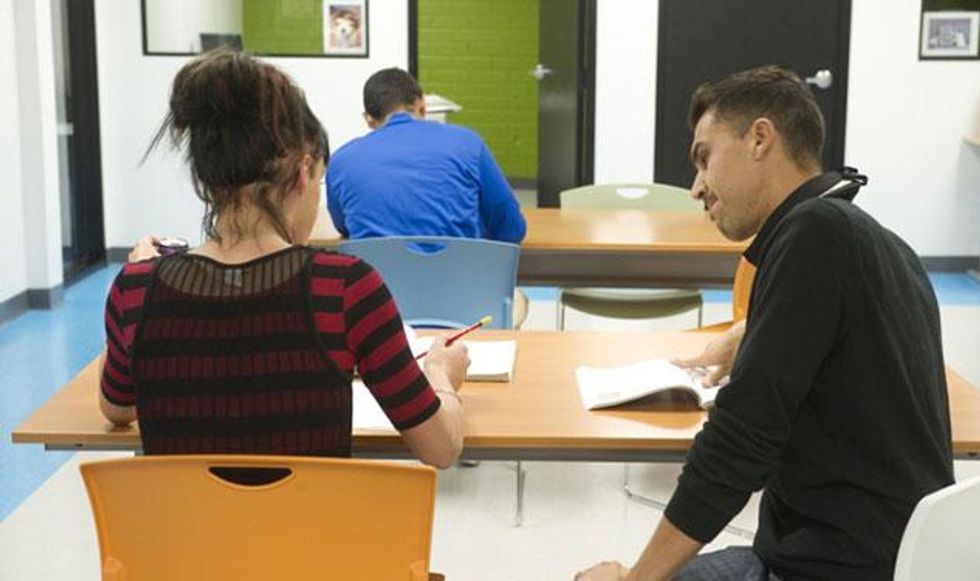




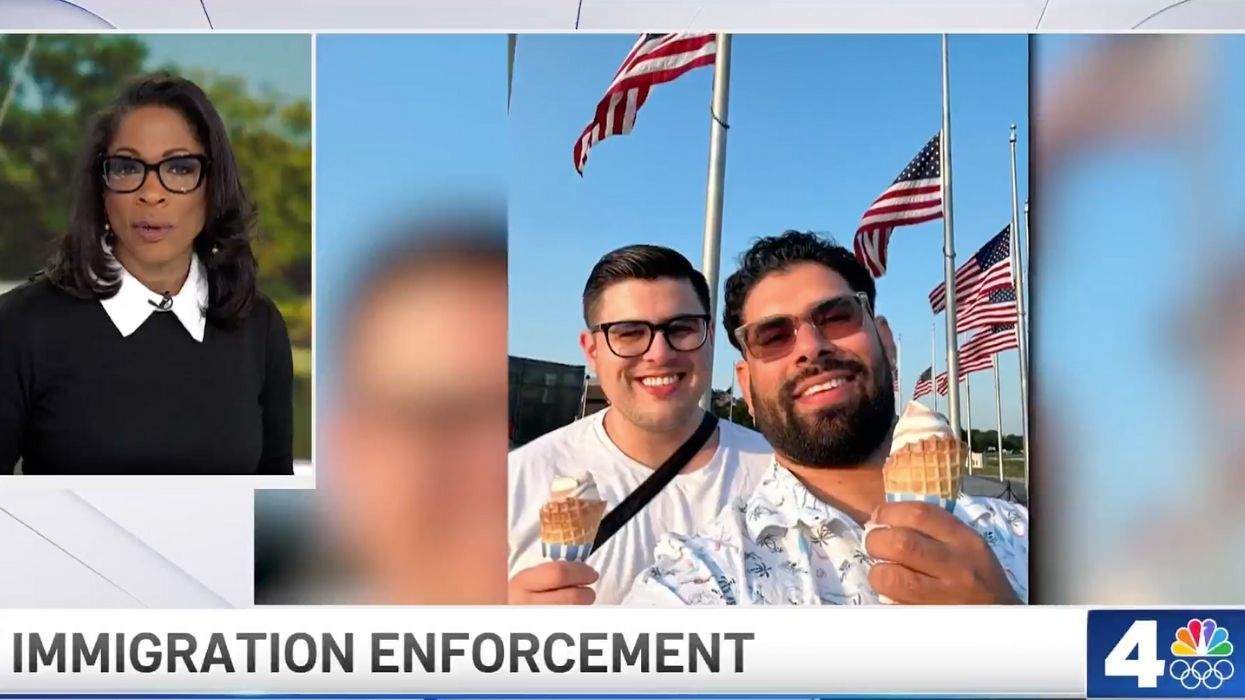
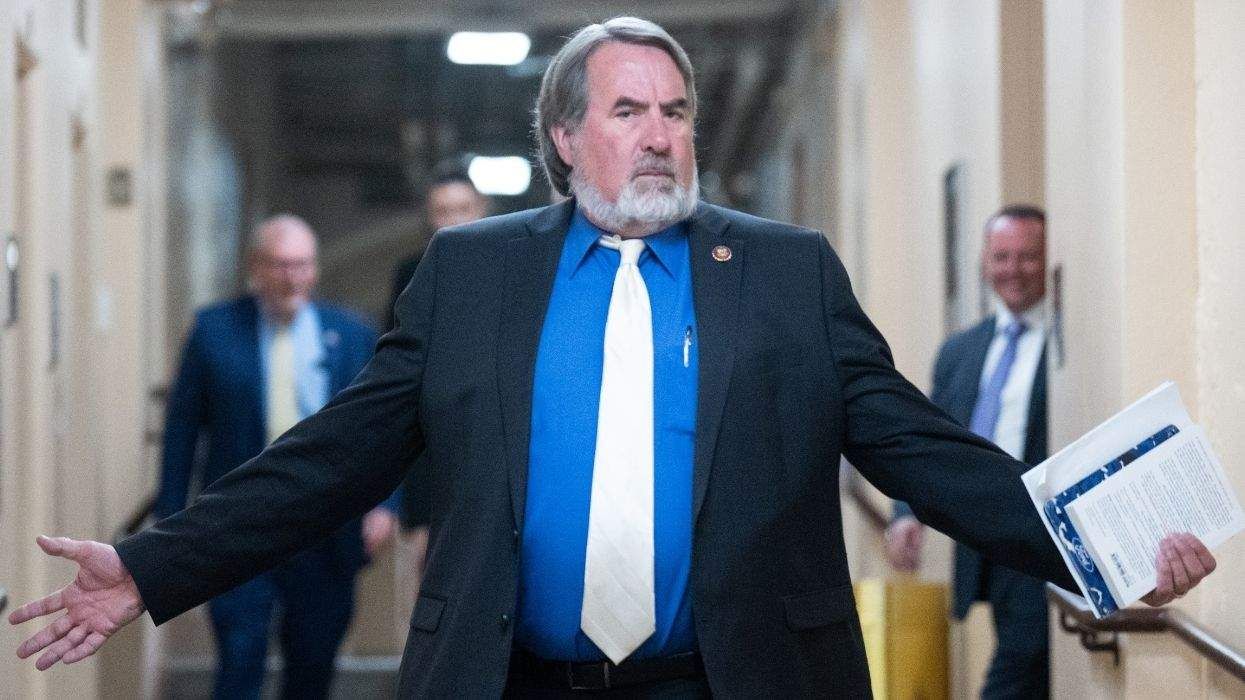

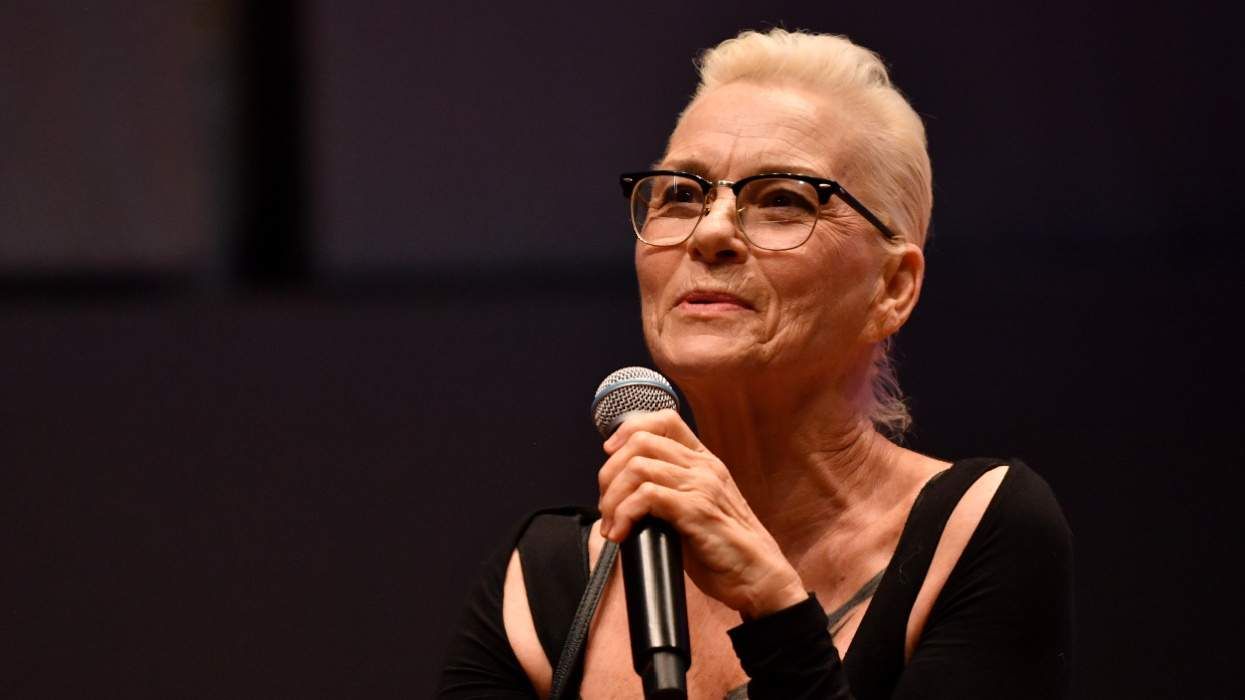
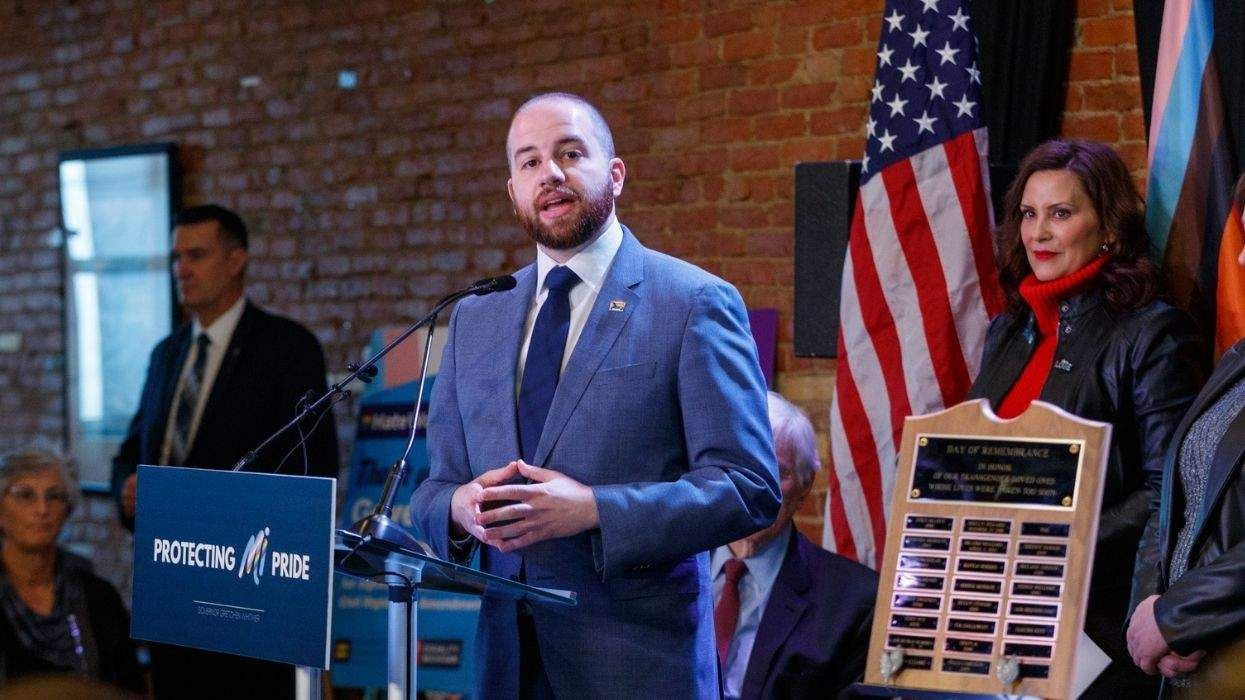





Charlie Kirk DID say stoning gay people was the 'perfect law' — and these other heinous quotes
These are some of his worst comments about LGBTQ+ people made by Charlie Kirk.